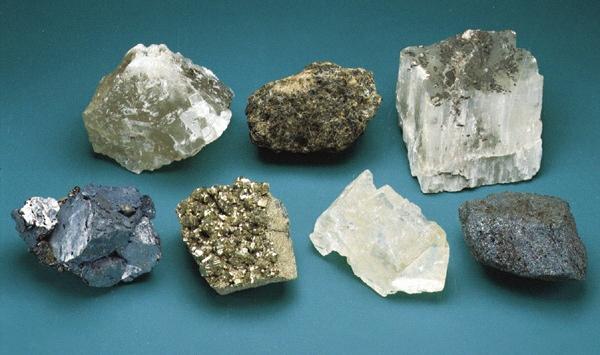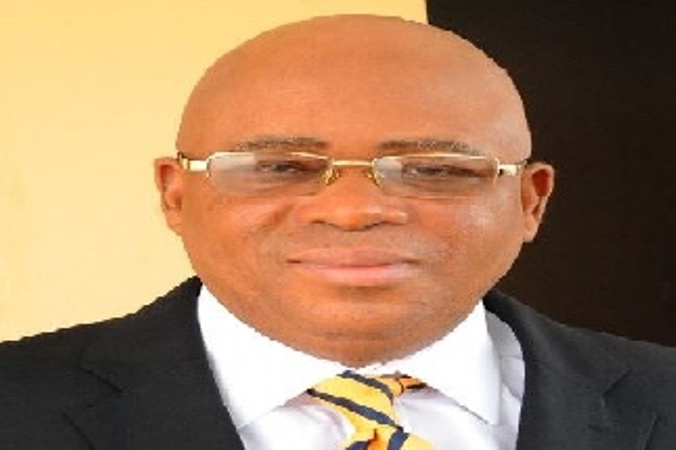Riches To Tackle Unemployment In Nigeria Buried In Ground- Osinbajo
Vice President Yemi Osinbajo, Thursday lamented that resources that should be used to tackle unemployment in the country were buried in the ground in different parts of the country.
Professor Osinbajo said unless the country gets the management of its solid mineral resources right, it would continue living in the terrible paradox of suffering in the midst of plenty.
The Vice President stated that during the maiden edition of the strategic engagement on sustainable mining with the theme: “Resurrecting Our Buried Prosperity”.
According to him, “So buried in the ground in various parts of Nigeria are riches that could ensure that no Nigerian is unemployed, underfed, or neglected.
“And this is not mere speculation because, before the discovery of oil, Nigeria developed its infrastructure, roads, rail, dams, provided free education in the western region for example, from the proceeds of minerals, agriculture and taxes.
“But with the discovery of oil, these incredible riches have remained buried in the ground for decades. In many parts of the country, you find illegal miners with poor equipment essentially scraping the surface of these deposits.
“Some better-equipped operators are able to do more, but they largely exploit cheap labour, and pay next to nothing in taxes or royalties, and cause environmental damage that is never remedied.
‘It is clear that unless we get the management of our solid mineral resources right, we would continue living in the terrible paradox of suffering in the midst of plenty. The problems are numerous but solvable.
‘The principal issue is that of the challenges of implementing the regulatory framework. While the Ministry of Mines and Steel has the legislative mandate to regulate mining in the country, many states and local governments have embarked on the imposition of their own rules and regulations on miners in their States, including issuance of Registration, Permits, Community Development Agreements (CDA) and Memorandum of Understanding (MOU) on miners.
“Some State Governments, in a bid to shore up their revenues, impose illegal fees, taxes, and levies on foreign and local licensed mining companies and operators.”
Professor Osinbajo said the federal government required the cooperation of states, council areas and mining communities, for the mining sector to become adequately beneficial to Nigeria.
He also noted that Nigeria must put an end to the culture of exporting its raw materials, start maximising the advantages of refining raw products and exporting products with value added as this has more to offer in terms of job creation and others.
He submitted that the federal government would not be able to effectively regulate mining activities in the country without the active participation of the state and local council structures, explaining further that the centre must also ensure that appropriate incentives go back to the sources.
He emphasized the need for the federal government to ensure that mining communities receive adequate attention, both for residents and for the environment around the communities.
He said, “Mining revenues go to the Federation Account and is shared between the Federal Government, States and Local Governments. States where resources come from get 13% derivation in addition to their share.
“The Federal Government cannot effectively regulate mining without actively, and deliberately working with States, Local Governments and mineral-producing communities.
“The Federal Government, States and Local Government have to jointly develop working arrangements to ensure that mining is attractive to investors, profitable for States and Local Governments, not just from proceeds but also from personal income tax paid to States by mine workers and staff of mining companies.
“The communities where mines are located must also have some direct benefits aside from jobs for their residents. We must find a formula for compensating the communities for environmental degradation and erosion.
“There must also be a framework for ensuring that environmental degradation is remedied.
“We must discourage the export of raw minerals. Refining, processing, or beneficiation is the only real way to maximize our mineral wealth and create good-paying jobs and opportunities for our people.”
He noted that Nigeria was already globally a leading producer of Tin, Columbite and Coal as of 1940. He noted that potential coal reserves in the country are currently estimated to be as high as three billion tonnes, adding that “much of our coal is high-grade clean and bituminous with a low sulphur and ash content.
“Even farther back in 1913, gold in commercial quantities had already been found in parts of Northern Nigeria and what is now Osun State. Bitumen was discovered as far back as 1900 mostly in the Southwest Zone, the bitumen belt covering what are now Ondo, Ogun, Lagos, and Edo States and today with deposits in excess of 42 billion tons we have the second-largest bitumen deposit in the world and almost twice our oil reserves.
“How about iron ore? We have the 12th largest iron ore deposit in the world, more than three billion tons. Besides, the Nigerian Geological Survey Agency (NGSA) confirms that Nigeria has over 44 mineral deposits in commercial quantities in over 500 locations across the 36 States and Federal Capital Territory of Nigeria. These minerals range from industrial and energy minerals, such as iron ore and coal, to gemstones, including sapphires, rubies, and emeralds.”
He, however regretted that with the discovery of oil, these incredible riches have remained buried in the ground for decades.
“In many parts of the country, you find illegal miners with poor equipment essentially scraping the surface of these deposits. Some better-equipped operators are able to do more, but they largely exploit cheap labour, and pay next to nothing in taxes or royalties, and cause environmental damage that is never remedied.”
The Vice President also regretted frequent arrests and harassment of licensed miners and their workers, and closures of mining sites as a result of taxes enforcement by states only disincentive prospective investors in the sector and invariably jeopardize the efforts of the Government to deepen the mining industry in Nigeria.
“There is no way this will ever benefit the majority of our people. Then there are the huge security concerns that always develop in the struggle for control of mineral resources in poorly regulated, unregulated, or ungoverned spaces. Almost invariably, these situations lead to criminal activities and particularly, the proliferation of weapons and armed groups. This is true historically and more evident now.
“On the African continent, we have ample examples of how resource extraction can trigger an increase in criminality. Here in Nigeria, armed banditry hiring and equipping of armed groups by illegal but powerful mining concerns in many resources-rich areas is clearly fuelled by the chaotic regulatory environment.
“It is for these reasons that this strategic engagement with the leadership of the 774 local governments is critical. It is apt and timely especially as the Federal government through the Ministry of Mines and Steel seeks to fully implement its robust and wide-ranging remit in policy and legislation.
“This engagement will certainly help in explaining the regulatory framework to the governments at the community level where most of the mining activities take place. It will enable the ministry and other stakeholders to get direct feedback from the local government authorities and those who have to deal with these issues daily.
“But where are we today? In 2016, the Ministry of Mines and Steel Development in collaboration with industry stakeholders formulated The Roadmap for the Growth and Development of the Nigerian Mining Sector Industry. The road map addresses some of the tensions between the Federal Government and subnational entities in relation to mining.
“The Roadmap which identifies partnership with mining communities as one of the “critical levers of success” states that “success in Nigerian mining requires partnership across multiple communities, stakeholders and institutions” and also stresses that “the role of state governments as both co-investors and sector champions is critical.” It further asserts that “a sustainable growth model” for the sector can be found “only through government innovations and partner action e.g. community engagement mechanisms, shared investment and co-creation of opportunities.
“Section 19 of the Nigerian Mines and Minerals Act establishes the Minerals Resources and Environmental Management Committee (MIREMCO). In each state which is composed of representatives of the Federal, State, and Local Governments and is designed to serve as a platform for fostering synergy in mining operations across all tiers of government.
“Consequently, the Act accords communities of the status of co-investors in the development of mineral assets. The Minerals Resources and Environmental Management Committees are important in bringing order, fairness, inclusion, and equity to mining and its value chains.





